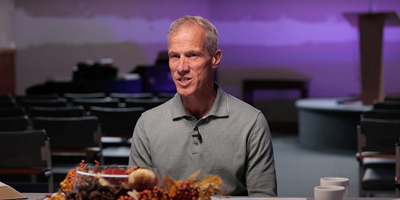Students frequently request that he tackles “hot-button” issues, such as creation, global warming, homosexuality and gender roles, that will attract an audience, and then shows how the Christian Gospel speaks into these areas. However, he is never asked to speak about abortion, because “that is too much of a hot-button issue for them”.
His experience with university-aged Christians is reflected when we look across all age spectrums. Abortion seems to be a taboo subject. The reasons for this vary. Some do not want to discuss the subject because they think the church should not be involved with this. Some, quite rightly, do not want to be associated with the ungodly behaviour of some “pro-life” groups. Others feel the battle has been forever lost.
As over 9.2 million babies have been murdered in the UK since 1968 due to abortion, can individual believers and local churches remain silent?
Approximately 550 of the most vulnerable in UK society are being killed every day, and society seems to accept this fact, or does not want to confront it. As the nation comes out of the COVID pandemic we are being told that this virus is something that we must live with. Many people seem to have the same attitude to abortion.
According to the World Health Organisation, from 2030 to 2050 global warming will cause 250,000 additional deaths per year. As abortion is the cause of approximately 50 million deaths per year there is no question as to which issue should cause us the most concern.
Within the last month, Dame Joan Collins gave an interview during which she spoke about having an abortion in her mid-20s. Collins claimed that having a child “would have been the death of my career” and “it would have ruined my life”. Sadly, she chose the death of the child and the end of its life. I was shocked by her statement that she had “not one tinge of regret” but her outlook is not unique.
In early June 2021, Dame Diana Johnson MP, backed by Caroline Lucas MP, tabled an extreme amendment to the Police, Crime, Sentencing and Courts Bill that would have introduced abortion on demand up to birth for any reason (including sex-selective abortion) in England and Wales. Thankfully, this amendment did not progress, but the fact it was raised and discussed in government is concerning.
On Tuesday 6th July 2021, a High Court hearing commenced as a woman with Down's syndrome challenged current abortion law. Currently, the law states that terminations can be performed well beyond the 24-week window if there is "a substantial risk that if the child were born it would suffer from such physical or mental abnormalities as to be seriously handicapped"; this includes Down's syndrome. It is incredulous that such discriminatory practices, more aligned with 1940s Nazi ideology, are allowed.
The culture of murdering infants is not new. When we go back into the Old Testament, we can see that the practice was prevalent as people sacrificed their children to the Ammonite god, Molech. No longer are child sacrifices made to Molech but many are made on the altar of self-interest, career and convenience.
God’s unchanging verdict on such a practice is clear (Leviticus 20:1-5). It is particularly noteworthy to see that not only was child sacrifice itself a sin but the tolerance of it was also. God held His people corporately responsible.
God desires that those with a voice speak for those who have none.
“Open your mouth for the speechless, in the cause of all who are appointed to die” (Proverbs 31:8).
Proverbs 24:11, which states, “Deliver those who are drawn toward death, and hold back those stumbling to the slaughter”, has a great spiritual application, reminding us that those who are headed to a lost eternity can be rescued through the Gospel message. However, taken literally, this verse is about innocent people being killed, and that includes babies.
So, what can I do?
Christians should consider that they can:
- Study the subject and pray that their views would align with God’s.
- Pray that the most vulnerable in society would be protected.
- Realise that abortion is not divorced from the Gospel message. Most people have not considered the subject and there are many testimonies of those who, when confronted with the issue, have been convicted of sin and turned to Christ for salvation.
- Speak about abortion in a God-glorifying way. If someone disagrees with you, show genuine interest and ask questions.
- Support Gospel-focused ministries that seek to be a voice for the voiceless and raise awareness of this ongoing genocide.
- Pray for the governing authorities and, when possible, communicate in a gracious manner the reasons that you oppose abortion.
- Be committed to showing compassion and extending God’s message of mercy to those who are considering or have undergone an abortion. The Gospel is a message of forgiveness and restoration, for all.
Photo Source: Unsplash





























